Learning Journey
There’s a chance you’re not a native English speaker, just like me. If you’re reading this now, it means you understand English—but was it always this easy for you? It wasn’t for me. I remember feeling overwhelmed every time I tried to read anything in English. And writing? That was an even bigger struggle.
Whenever I pushed myself to read something interesting, I’d quickly realize I couldn’t understand most of it. I’d stumble over words, stop constantly to check meanings, and after a few failed attempts, I’d give up. Eventually, I’d copy the whole thing into Google Translate just to make the pain go away. Did it solve my problem? Sure, in the sense that I could understand the text. But did it help me improve my English? Not really. It’s like trying to have a conversation with a Turkish man using Google Translate on your phone—awkward, clunky, and far from ideal. (Yes, I’ve actually done this, so I know the struggle firsthand!)
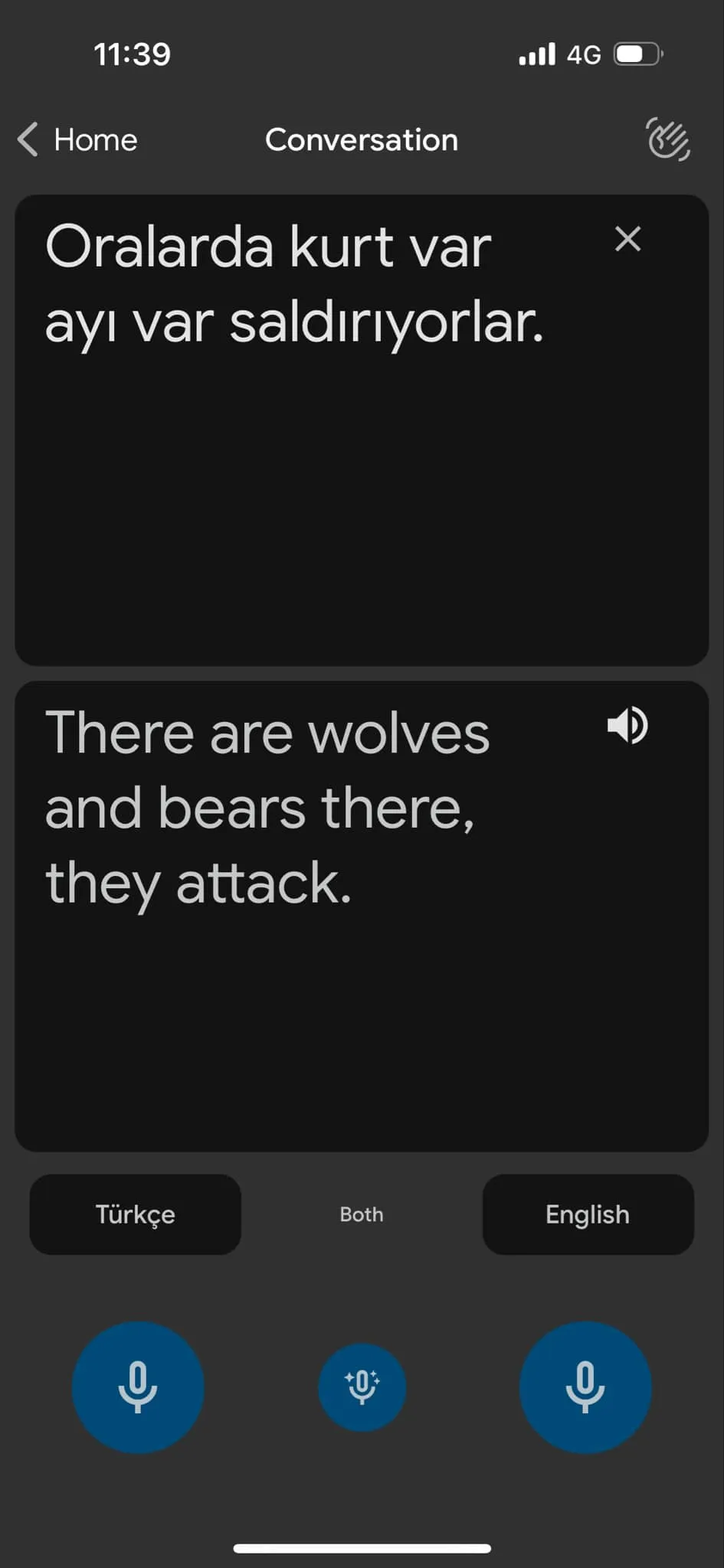
For a long time, I stayed stuck in that cycle. Reading felt like a chore, and writing seemed impossible. But then, something changed. I decided to start over—not just learning the language but changing how I learned it. Instead of passively trying to memorize everything I jumped into a process that completely transformed my approach.
“It’s like trying to teach a cat to do ballet – you can try all you want, but it’s not going to work, and the cat will just end up more confused.” 🐱🩰
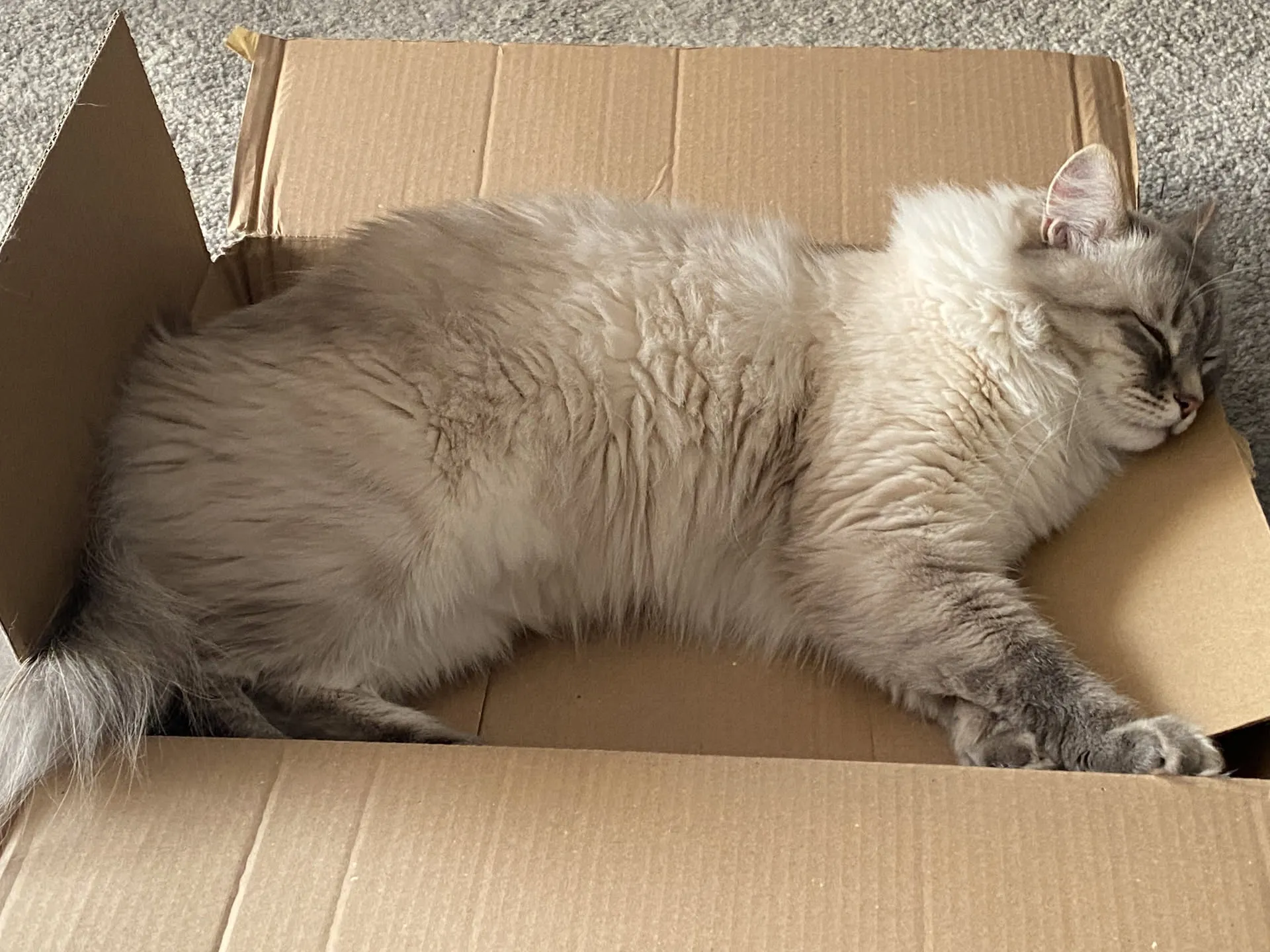
A Shaky Start, A Strong Finish
Up until that point, I believed I lacked any language skills (my school grades certainly didn’t suggest otherwise). Yet, through this new way of learning, I found myself reading, writing, and communicating with people from all over the world. What drove me to do it? It wasn’t just a goal to master English—it was my passion for understanding the immense world of knowledge on the internet, most of which is written in English.
Everything else—being able to write, read, and connect with others—was simply the result of committing to this process. And it changed my life.
A Mentor and 25,000 Words
So, how did it all begin? First, I need to give a massive shout-out to my mentor, Bartosz Czekala, who taught me how to learn effectively. He didn’t just give me tips—he showed me how to break through my own limits and create learning systems that transformed my understanding of memory and how I could use it.
Long story short, I used his techniques to memorize 25,000 English words. Yeah, you read that right—twenty-five thousand! Now, let’s pause for a second. What does “memorizing” all those words even mean? Does it mean I can whip them out like a magician pulling a rabbit from a hat? Am I a walking dictionary at family dinners, casually tossing around fancy vocabulary? (Well, yes, kind of—I’ve definitely retired from playing Scrabble in Polish. It’s not even fun anymore because the words come too easily.)
But does it mean I’ve magically become fluent and speak London only? Nope, not at all. And here’s where we need to understand something crucial about vocabulary: there are two types—active and passive.
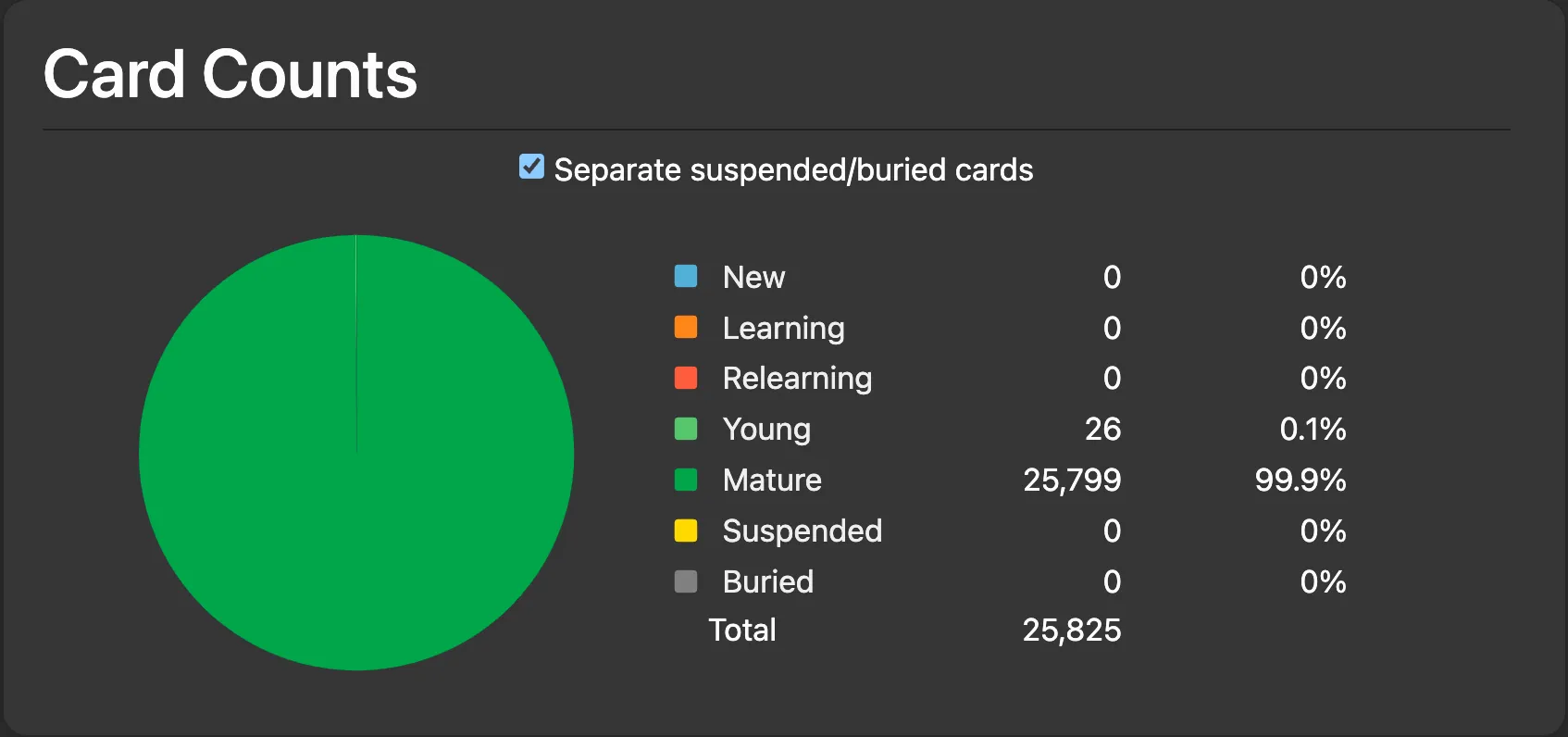
Active vs. Passive Vocabulary
Active vocabulary includes the words you use all the time. It’s what defines your everyday conversations, allowing you to form sentences naturally and repeat ideas effortlessly. Think about your native language for a moment: how many words do you actually use daily? Probably not as many as you think! Most of us stick to the same patterns, talking about familiar topics like family, work, or hobbies. (Unless you grew up in a family of professors who discussed quantum physics over breakfast—then, yeah, your active vocabulary might be a bit… intimidating.)
Passive vocabulary, on the other hand, includes all the words you recognize but don’t actively use in speech—well, maybe sometimes. It’s what helps you understand movies, books, or conversations without constantly reaching for a dictionary. And this is where my 25,000-word achievement truly shines.
Preparations
Let’s start with a bit of context. I’d been learning English since I was a child, like many of us do. But you can probably guess how that looked: basic lessons in school that didn’t lead to much by the time I graduated. That said, I wasn’t starting completely from scratch. I knew some basic grammar, a few frequent words, and had just enough confidence to stumble through simple sentences. So, while I wasn’t at zero, my foundation was shaky at best.
This small starting point helped me skip the basics of English grammar when I decided to get serious about learning. Instead, I focused entirely on vocabulary, which I believe is the most crucial part of mastering a language. Vocabulary is the key. With enough words, you can piece together meaning and understand almost anything—even if your grammar isn’t perfect yet.
Anki: My Best Friend and Brain Bleeder
The one tool that became my best friend in this process was Anki. For those who don’t know, Anki is an app based on spaced repetition, a method that helps you review words at intervals to maximize memory retention. And trust me, except for the mental exhaustion (or “brain bleeding,” as I like to call it) after each session, Anki was a game-changer.

Context Matters
When it comes to vocabulary, context is everything. Memorizing words in isolation might seem faster, but it rarely sticks. Instead, you need to embed words in scenarios where you’ll actually use them. Here’s what I mean:
fe. “ubiquitous - present everywhere” -> “Wi-Fi is so ubiquitous.”
Whenever I forgot a word, I’d rework the card or create a fresh sentence to solidify it in my mind. This tweak made all the difference, helping me recall words naturally when I needed them.
Out of respect for Bartosz, I won’t go into the finer details of his method. But to put it mildly: the key is to place a word in a context that mirrors how you’ll want to retrieve it later. It’s not about memorizing a definition—it’s about embedding that word into scenarios where it feels natural to use.
Bartosz Blog
How My Routine Looked
Discipline was everything. For two straight years, I woke up every day around 6 a.m.—before heading to work—to tackle my flashcards (It’s not a problem for me cause I’m early bird). Each session lasted 1-3 hours, and trust me, by the end, my brain felt like it had been through a workout. I jokingly called it “bloody brain syndrome,” but it was all worth it.
Throughout the day, I’d chip away at easier repetitions whenever I had spare time. It wasn’t glamorous, but it was effective. The consistency built momentum, and over time, the results started to show. Words stuck, understanding improved, and English became less intimidating.
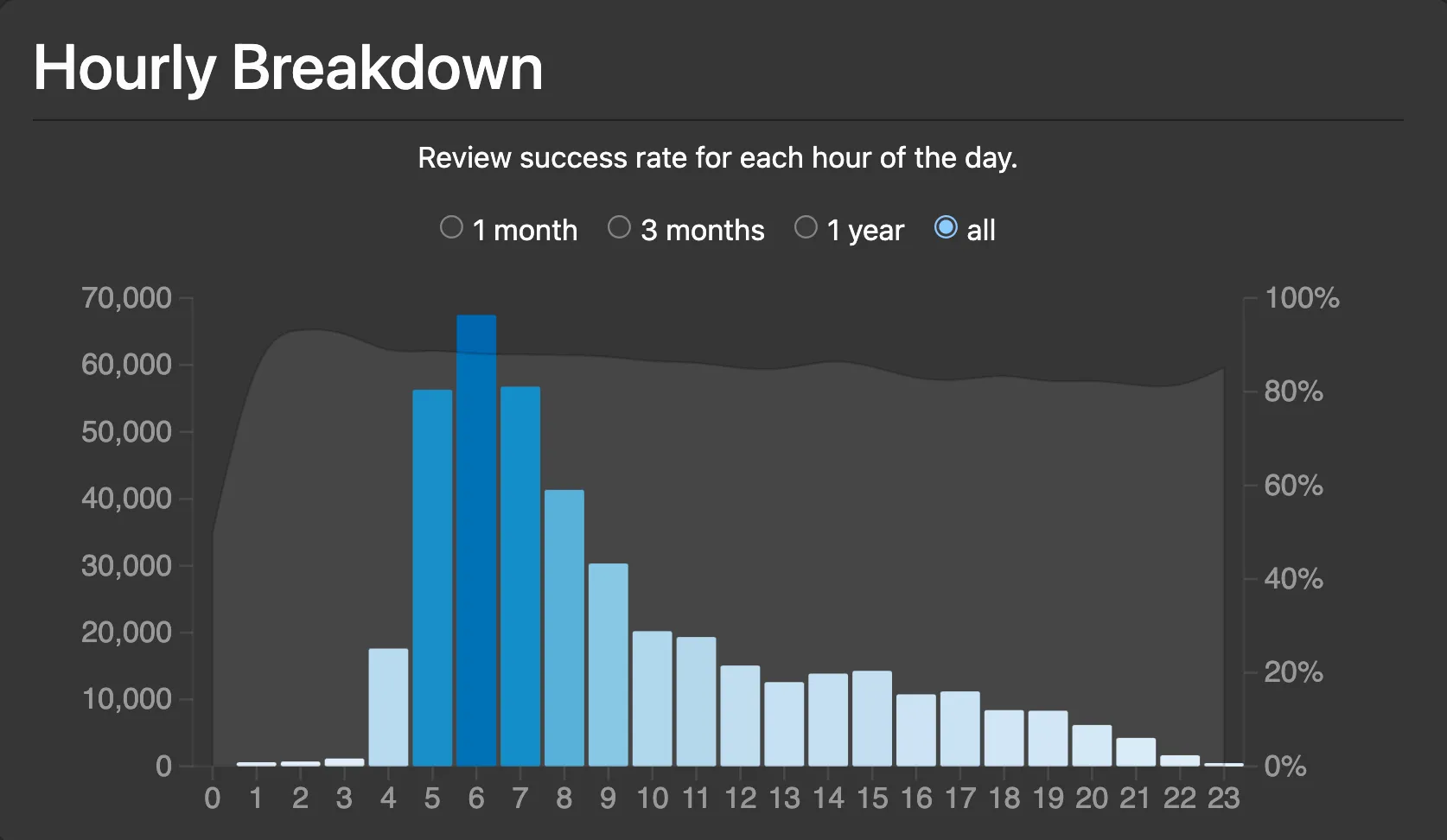
Now
The number of flashcards I review daily has dropped dramatically—from 500 per day to just 30. Now, it takes me only 2–3 minutes a day to leave a meaningful trace in my memory.
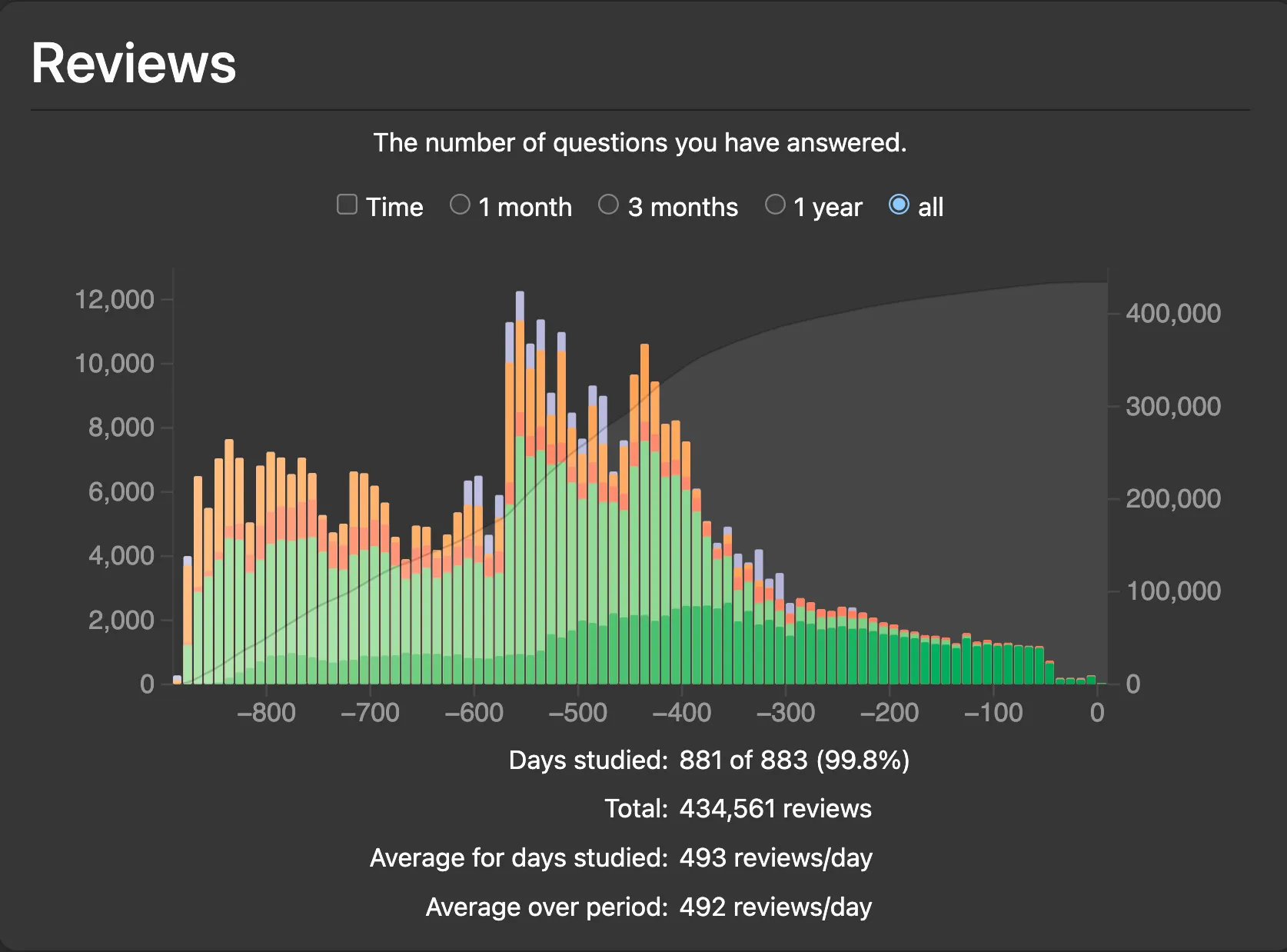
Final Thoughts: Learn for Something, Not for Nothing
If there’s one takeaway from my journey, it’s this: learning is worth the commitment—but only if you have a purpose driving you forward. Don’t learn just for the sake of learning; find a goal that gives your effort meaning.
Take language learning as an example. I wasn’t memorizing 25,000 words to impress people or earn a certificate—I wanted to unlock the vast amount of knowledge and opportunities the English language offers. That purpose kept me going through the tough days.
The same applies to any skill you’re trying to learn. Instead of saying, “I’ll learn this programming language to make more money,” ask yourself, “What can I build with it? How can I use it to solve a real problem in my life?” When you shift your focus from the abstract to the tangible, learning becomes not just easier but far more rewarding.
So, whatever you’re working on—whether it’s mastering a language, picking up a new skill, or tackling a big challenge—make it count. Learn for something, not for nothing.
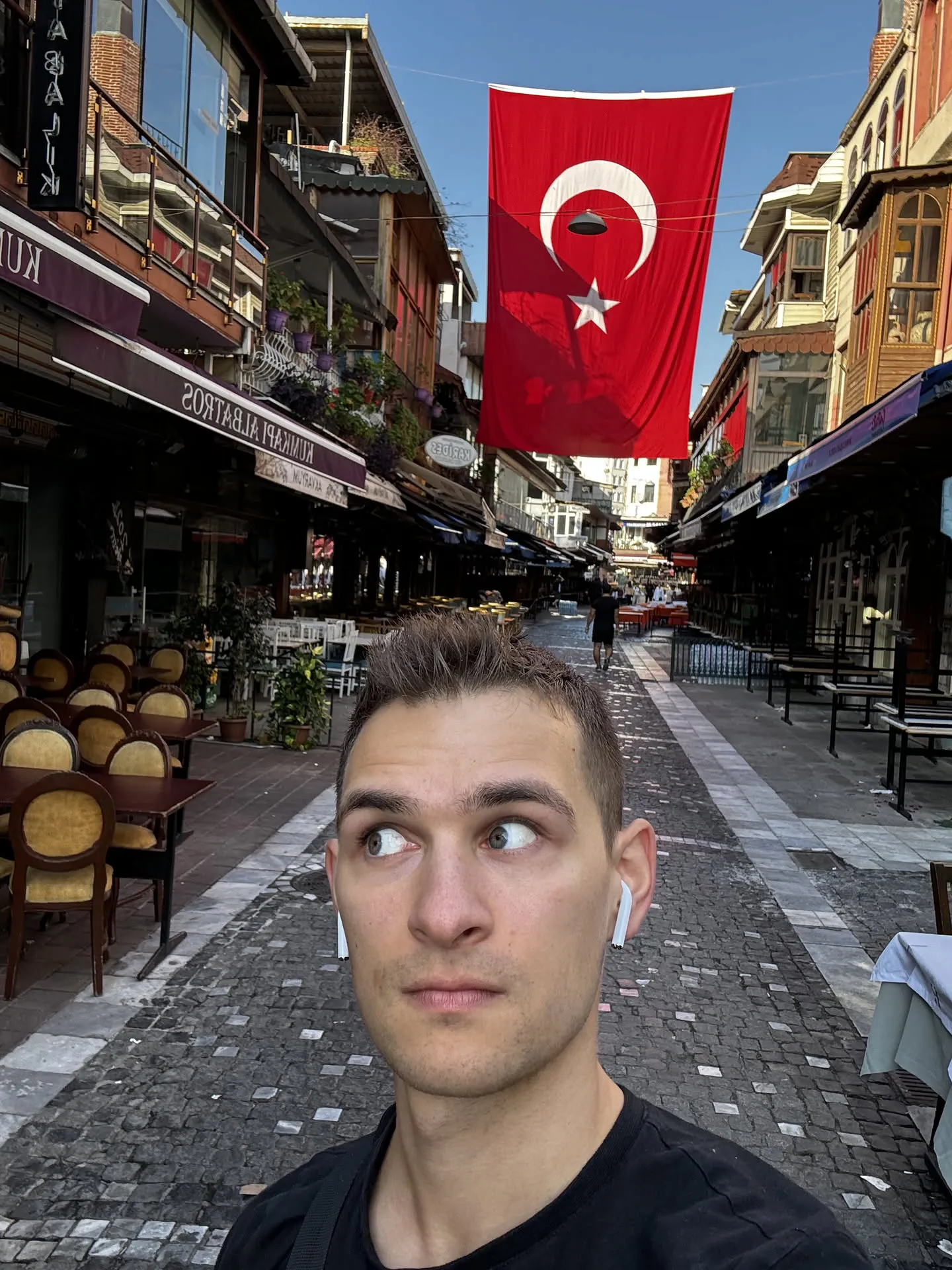
Fun Facts: Keep It Simple
One of the funniest things I learned about language is that using “smart” words doesn’t always make you sound smart—especially with native speakers. Words like “ubiquitous” or “quintessential” might earn a laugh more often than admiration in casual conversation.
The key takeaway? Simplicity wins. Most people value clear, straightforward communication. Instead of overloading your sentences with fancy words, focus on being understood. That lesson transformed the way I approached conversations, making them more enjoyable and less intimidating.